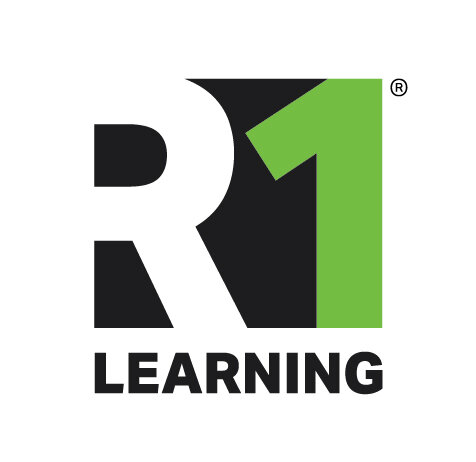The R1 Blog: Best Practices for Engagement and Learning - What Can I Expect From R1?
R1 Learning - We’re all about creating engaging learning experiences through self-discovery
Our goal at R1 is simple… to shine a light on how we approach learning, especially through self-discovery, and how our approach to learning can increase engagement, improve retention, improve outcomes, be measured, and be a differentiator for both you personally and your program. Most important, it is my goal that as you implement some of the ideas we share, you will ultimately improve outcomes – impacting the individuals and families you serve.
At our core, R1 sees individuals as learners in a new subject area. As people learn more, their vocabularies grow, enabling greater understanding and increasing their ability to communicate with others more effectively. The more individuals can describe what they are thinking and feeling to family, friends, and counselors, the sooner they can act on new choices and live a more healthy and meaningful life.
Let me introduce myself. My name is Tom Karl and I’m the Founder of R1. You can learn more about me on our website, but for now, please know that I’m here to share my professional experience in the learning and development field as well as my own recovery experience and story. I care deeply about others who struggle with similar challenges and hope to help in some small way. I’m looking forward to sharing what I’m learning from the leaders in the field, how it’s helping my own recovery, and how it’s impacting individuals and programs across the world. I hope that R1 will become a valuable resource for you and your program.
The goal is to use this blog as a place to explore ideas with you, encouraging application into your work setting. Below we outline the categories we are using to organize our thoughts and posts so you can get a better idea of the value you’ll get if you check in with our R1 blog often. Here are the areas we plan to cover:
Engagement – Creating Engaging Learning Experiences through Self-Discovery. We’ll explore questions like: How do we set the stage for learning? How do we capture the attention of the individuals in our programs through learning and self-discovery? How do we create group sessions that address different learning styles? For us it’s all about engagement. If learners aren’t engaged, they can’t learn. And if they don’t learn, they can’t progress and change.
Environment – Creating Great Places and Spaces for Increased Engagement. We’ll deal with questions such as: How do we set up the room to maximize the learning experience? The settings that we create for learning set the stage for how individuals learn: If we have chairs, people sit... If we have models on a monitor display in front of the room, people look at it... If we have tables, people anticipate an activity. In this case, form can precede and drive function. Places for learning can be in person or virtual – we’ll talk about how to maximize learning in both. In the future we’ll cover distance learning as well.
Curriculum – Standardizing Learning with Structured Best Practices and Evidenced-Based Content. Wow, that’s a mouthful. Our focus here will be about what we teach and how to structure the learning experience and course materials. We’ll help you look at questions like: Do you have a Curriculum Map for your programs? Do you have clear and visible learning objectives for each of the modules in your Curriculum Map? How do you intend to teach the content in order to achieve the learning objectives? Do you design your group sessions to reach different learning styles? Do you deliver activity-based exercises with well-designed and engaging interactive tools? We’ll also address the importance of using models, building vocabularies, and keeping the content bite-sized and memorable for the learner.
The 101s – The Basics of the R1 Core Content. We’ll offer an introduction to best practices and fundamentals in addictive disorders, behavioral health, and life skills topics. As part of this category, we’ll share what we’re learning from the leaders in the field, including a high-level look into their evidence-based research. We’ll highlight the basics in short, bite-sized content highlighting the most important and interesting information in an engaging way. These will be short and sweet, yet rich.
Metrics that Matter – Measuring Learning: The Pathway toward Improved Outcomes. How do we measure learning – engagement, satisfaction, comprehension, retention, problem-solving, and achievement? How can we link these measures, especially engagement, to increased retention in programs and to improved outcomes? If individuals aren’t engaged immediately, whether it is their first time in recovery or their tenth, they leave mentally first, and are out the door physically second. When individuals are in the group room, every moment counts. I hope that your psychoeducation groups will become the centerpiece of your program – a place to hook individuals early and create a place for learning and self-discovery.
We hope that you’ll be able to use the information we provide for yourself and that you’ll share it with your colleagues. When appropriate, blog posts will include an activity or informational worksheet that you can take to your staff meetings and use as part of your team’s professional development.
I hope you’ve enjoyed our first blog post. There are more to come. In the meantime, please help us with any of the following actions. Otherwise, stay tuned!
Copyright 2023 R1 Publishing LLC / All Rights Reserved. Use of this article for any purpose is prohibited without permission.
Share this blog post with others. (Thank you!)
Start a conversation with your team. Bring this information to your next team meeting or share it with your supervisor. Change starts in conversations. Good luck! Let us know how it goes.
Visit www.R1LEARNING.com to learn more about R1, the Discovery Cards, and how we’re creating engaging learning experiences through self-discovery.






